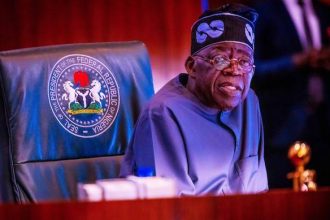President Tinubu’s Bold Economic Reforms: Do these pave the Way for Nigeria’s Transformation?
In a surprising turn of events, Nigeria’s newly elected President, Ahmed Bola Tinubu, has wasted no time in implementing a series of bold economic reforms. These reforms include the elimination of costly fuel subsidies and taxes, as well as the introduction of interest-free loans to support higher education for young Nigerians. While these measures may boost short-term confidence among Nigerians, international investors, and financial markets, they alone cannot address the country’s deep-rooted economic woes.
Nigeria, as Africa’s largest economy, is grappling with severe economic challenges. Soaring inflation, escalating debt levels, and large fiscal deficits have created a precarious financial situation. Moreover, the country’s heavy reliance on food imports and petroleum, despite being a major oil producer, has further strained its economic stability. Mismanagement, security concerns, and inadequate infrastructure investment have also hindered progress in key sectors like oil and agriculture.
Tinubu’s move towards economic orthodoxy and reduced interventionism is a positive step in the right direction. To fully harness the demographic potential of Nigeria, he must focus on attracting international investments and cutting bureaucratic red tape. However, the President’s success hinges on addressing broader security, energy, and governance issues that are deeply interconnected.
Security risks, which have been a major concern for Tinubu’s predecessor, Muhammadu Buhari, pose a significant threat to the success of rapid reforms. Boosting economic growth and creating employment opportunities through a thriving economy may discourage potential militants. Rooting out corruption, preventing monopolies, and reforming the security sector will be crucial in this endeavor.
Addressing Nigeria’s oil sector woes is of paramount importance. The recent fuel-subsidy reform will contribute to fiscal discipline, while the opening of Aliko Dangote’s oil refinery could reduce the country’s dependence on petroleum imports. To encourage economic diversification, Tinubu must also tackle import monopolies that hinder progress in various sectors.
https://newsway.com.ng/gospel-virtuoso-frank-edwards-defies-cybercrime-embraces-ethical-prosperity/
Diversifying the economy will require expanded access to electricity, as currently only 55% of Nigerians have reliable power. Fortunately, Nigeria has vast potential for clean energy, and development partners like the World Bank can offer support to boost private investment in electricity distribution and renewables. Ensuring stable governance and a conducive financial system will be key to success.
Nigeria’s thriving tech ecosystem exemplifies the nation’s untapped potential. With numerous startups emerging, particularly in fintech, the country boasts five of Africa’s seven tech “unicorns.” By easing exchange-rate restrictions, Tinubu can encourage financial inflows and empower startups to transform various sectors, benefiting millions of Nigerians.
President Tinubu’s commitment to energy, security, and governance reforms could have far-reaching implications for Africa, much like Saudi Arabia’s economic experiment transformed the Middle East. However, Nigeria lacks the vast financial resources of Saudi Arabia and will rely heavily on foreign and domestic private investment, as well as support from development partners. With sufficient backing, Tinubu has the potential to remake the country and impact the continent positively.
How are Nigerians faring altogether?
With this present state of the economy, Nigerians are facing significant economic challenges. The high cost of living, inflation, and soaring debt levels indicate that many Nigerians are experiencing hardship. The suspension of fuel subsidies and various taxes may have contributed to the cost of living burden. Additionally, the lack of access to electricity for nearly half of the population further exacerbates the difficulties faced by Nigerians.
While President Bola Tinubu’s economic reforms may bring short-term confidence, they are not enough to address the deeper underlying issues. It has been established that security risks, oil-sector problems, and governance challenges are major obstacles to lasting change and economic improvement. These challenges likely contribute to the complaints and hardships experienced by many Nigerians.
However, it is worth noting that transforming a large economy like Nigeria’s takes time, and the success of the reforms will depend on sustained efforts and effective policies to tackle the root causes of economic struggles.












